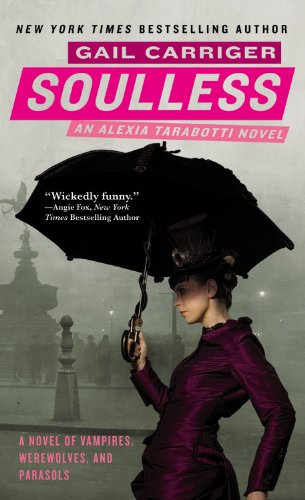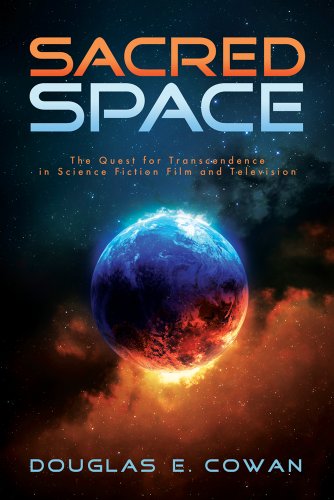Brass Were

Genre fiction can be done as “write by the numbers” fiction. This sounds like a put-down, but it isn’t. Like all forms of art, there are agreed upon points that need to be paid attention to, and an artist ignores them at her peril. For example, if you’re going to write steam-punk (a form of alternate history fantasy typically set in Victorian Europe with anachronistic technology) you need to pay attention to the social norms of the time, and you need to at least hint at the presence of the aforesaid technology. In addition it’s become fashionable to feature a lot of corsets, as well as complicated looking goggles. I have no idea why.
Gail Carriger’s first volume of the "Parasol Protectorate" Soulless is most definitely steam-punk. It’s got corsets and goggles and Queen Victoria and a lot of amazing brass studded machines chugging away in the background. In the foreground it has Alexia Tarabotti, spinster, and Connall Maccon, hot Scot. Between the two they manage to provide plenty of steam for those gleaming steam engines. (Hm. Yup, probably not a recommendation for pre-teen readers.)
This particular version of the British Empire has made its peace with vampires, werewolves, and ghosts, and integrated them into respectable society. Alexia, whose Italian father is dead and whose mother has remarried and brought two rather dim half sisters into her life, has the useful talent of being soulless. This would be scandalous if it were generally known. Instead she is drawn into the middle of a conspiracy to commit a terrible atrocity, together with the aforementioned hot Scot, who also happens to be the top honcho in the Queen’s service for dealing with terrible atrocities, preferably before they are committed.
Fast reparté as well as some fancy footwork make certain the reader keeps turning the pages.
What I particularly enjoyed about this story is how Carriger manages to create a cast ensemble that you really want to meet again. And you’re in luck: there’s at least one sequel.

